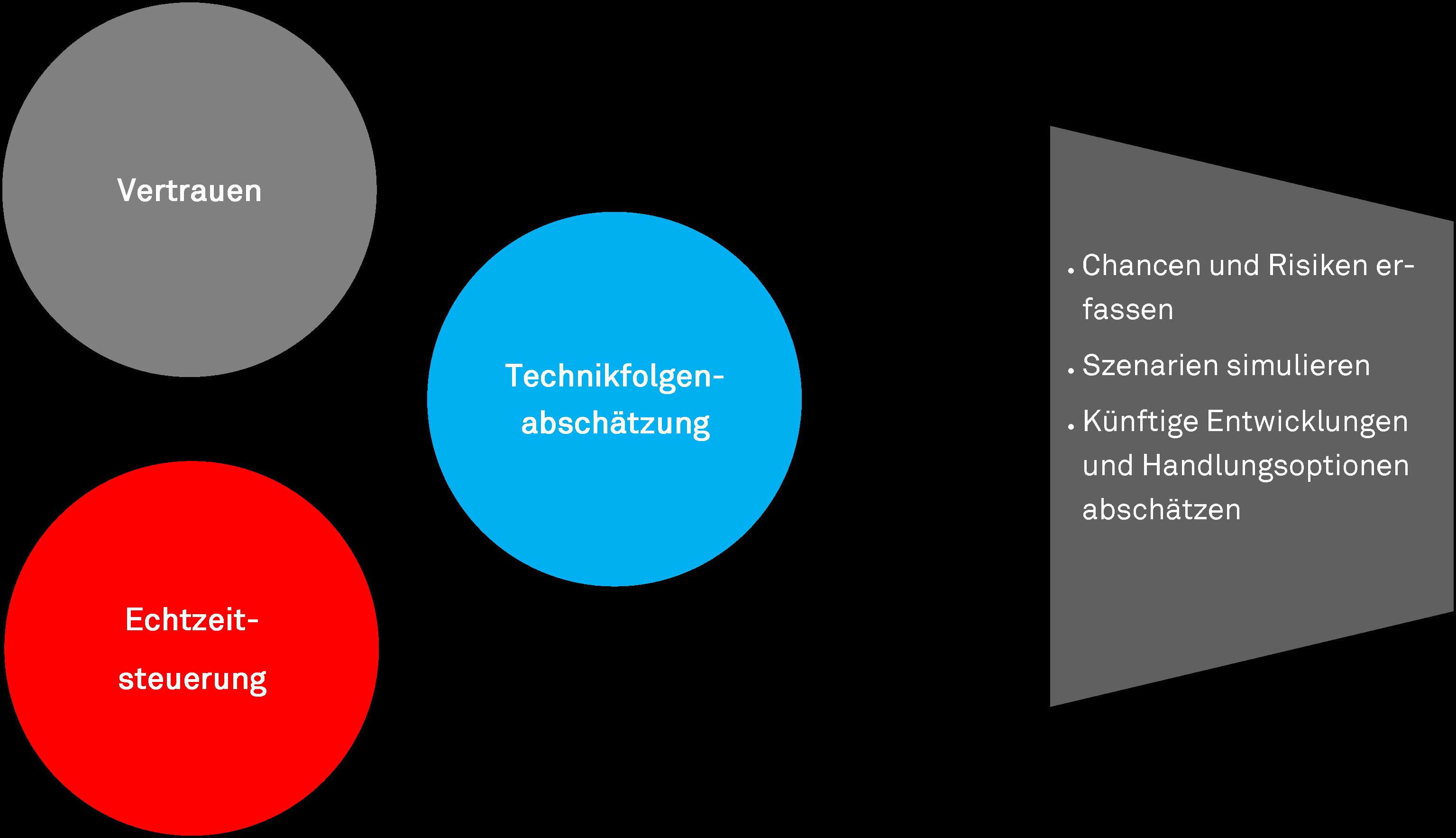Working Group Sociology
What data does my smartphone send, when and to whom? What data is given to Facebook, Google and Co., and what do I get in return as a user? Why and how long will my data be stored? Who can protect me against data espionage: Internet companies or providers or the state? Why do we entrust our data to the big Internet companies – despite repeated data scandals?
To answer these and other questions, the working group “Sociology” will initially investigate the social RISKS posed by current developments in the field of Big Data. These risks include, for example, the change in privacy (post-privacy vs. enhanced data protection), the reliability of the findings from Big Data analysis (correlation vs. causation), and the emerging “digital divide” between those who can use Big Data and those who do not have access or no competence to do so. In addition, potential OPPORTUNITIES of Big Data such as predictive analysis or the more accurate modeling of collective dynamics, trends and configurations will be analyzed from a sociological perspective. In this context, Big Data analysis seems to offer great potential in the field of REAL-TIME CONTROL of cyber-physical systems, where enormous amounts of data are generated locally. All these issues have one thing in common: TRUST. Because trust is both the basis for many business models of Web 2.0 and advanced Big Data applications. Understanding the impact of trust, how it develops and is maintained in the age of Big Data, and whether data abuse or a breach of trust can be avoided by the development of moral standards and institutional frameworks is the main focus of the working group.
The key activities outlined above are interdependently linked. For example, locally generated data form the basis for real-time control of systems, the collection of enormous masses of data required for this in itself questions the existing concept of privacy, and ultimately such data collection would not work if the user/creator did not trust the required technologies and evaluating actors (e.g., businesses, government and science). The working group “Sociology” will thus analyze current developments from a sociological perspective and identify possible future developments and options for action.
